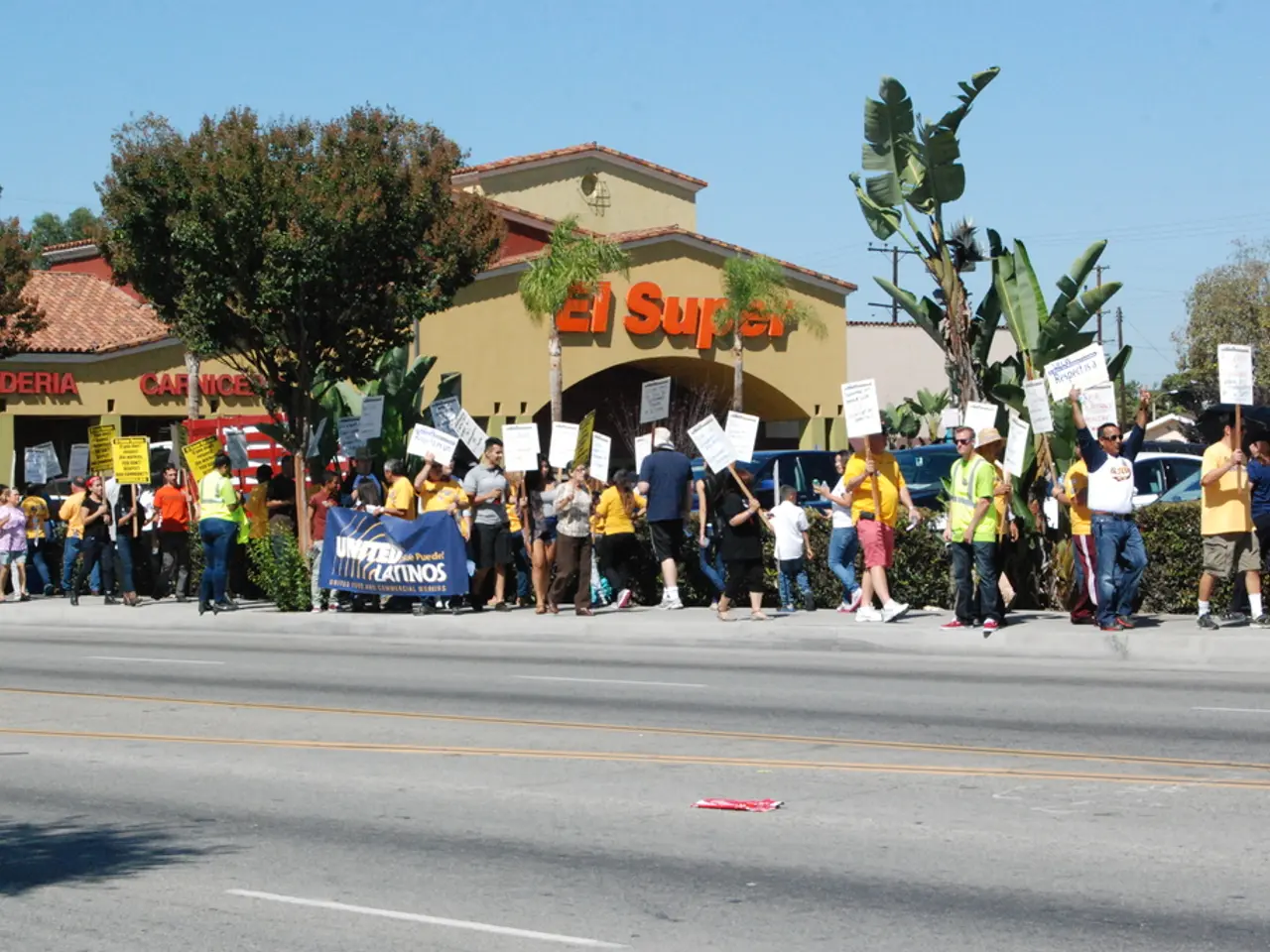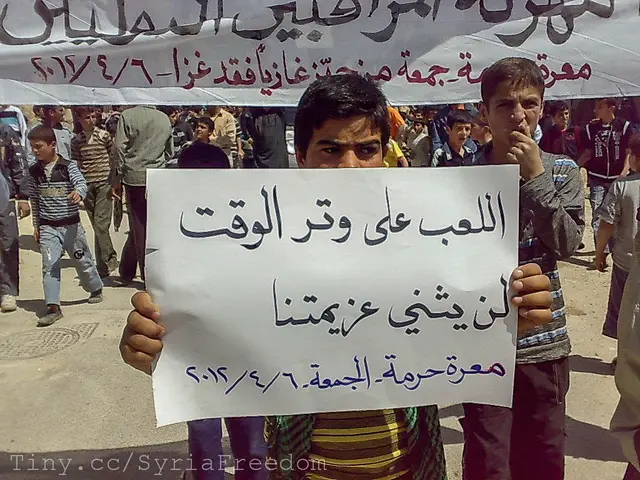Voting Registration Stations Found in Hogan's Affairs
Holy Cross Boosts Student Civic Engagement Ahead of 2024 Presidential Election
The College of the Holy Cross is taking active steps to increase student engagement in the upcoming 2024 Presidential Election. As part of this commitment, the institution has launched various initiatives designed to help students navigate the complexities of voting, especially for those who may be voting in a different state or country.
One such initiative is the promotion of TurboVote, a personalised program tailored to the Holy Cross community. This program aims to make voter registration and absentee ballot requests more accessible for students, ensuring their voices are heard in elections.
The Elections Forum series, which began in 2020 and has been brought back in the current year, is another key part of Holy Cross's efforts. This series is designed to keep the campus community engaged and informed in the lead-up to the 2024 Presidential Election.
During the event held on September 25, 2019, the Student Government Association at Holy Cross, under Co-Presidents Meredith Coolidge '19 and Adrian Cacho '19, supported National Voter Registration Day by setting up tables in various locations on campus. Students could obtain voter registration and absentee ballot request forms at these tables.
Voting processes for college students can vary significantly by state, especially for those who live out-of-state or are from other countries. Key factors include residency requirements, voter ID laws, and local election rules.
Most states require voters, including college students, to register and vote where they are domiciled—meaning the place they consider their permanent home and have no immediate intent to move from. College students who reside on campus typically vote in that state, while those who consider their parents' home their permanent address must register and vote there instead. Voting in two states is illegal.
Out-of-state students can often register to vote absentee in their home state if they choose not to register where they attend college. Each state has specific procedures for absentee or mail-in ballots, with resources available at vote.gov to help students register and request absentee ballots from their home states.
Foreign students, however, cannot vote in federal elections as they are not U.S. citizens.
Mail-in voting and alternative voting methods also differ by state. Some states offer mail-in ballots, absentee voting, on-campus polling places, absentee ballot drop boxes, or early voting options on campus or nearby. For example, some states provide shuttle services to polling sites or mobile voting units.
However, potential barriers such as voter ID laws and registration updates can disproportionately affect out-of-state and minority students. Photo ID requirements may pose barriers, especially for out-of-state students without a local ID. Some states do not accept campus IDs for voting. Students who move frequently might need to update their voting registration every election cycle, which can be cumbersome.
Students can find specific state information by checking their state’s official Secretary of State or election board websites for detailed mail-in voting procedures. Vote.gov is a centralised site that helps voters find their state’s registration and absentee voting rules. Colleges often provide voter registration resources to physically distribute mail voter registration forms and direct students to their states’ specific rules, fulfilling legal requirements.
Local university websites often provide tailored guidance considering student residency and voting regulations. For example, the voter registration page on the University of Minnesota Duluth’s website offers specific guidance for students.
In summary, college students should determine their voting residency carefully, use vote.gov or their state’s official election websites to understand mail-in ballot rules, and be aware of potential barriers like voter ID laws and registration updates, which vary by state and may disproportionately affect out-of-state and minority students.
The upcoming 2024 Presidential Election is expected to be heavily impacted by the youth vote, and Holy Cross is ensuring that its students are well-informed and prepared to participate.
Read also:
- Overcoming Yielding Regulations Hurdles in Indian Export Sector for EU Markets
- Shaping production and consumption tendencies via cosmetic certification
- Deteriorated residence designed for trainees
- Federal control looms over New York City as Trump's administration enacts policies detrimental to the city, potentially seizing control.








